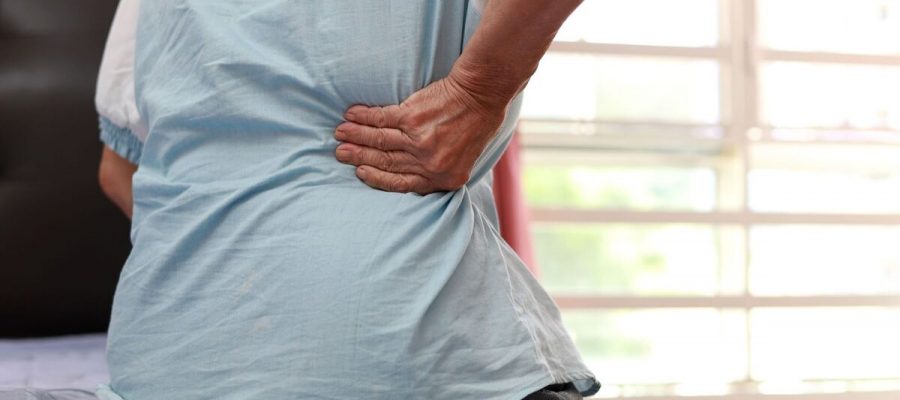The deconditioning effect on the body of more sedentary lifestyles since lockdown is being blamed.
Prof Antony Johansen, of the National Hip Fracture Database at the Royal College of Physicians, said people became physically unfit due to the stay-at-home rules.
And he told a fracture congress in Norway on Friday that unless society becomes more active this worrying trend could continue.
He also suggested there is evidence hip fractures, most of which are linked to osteoporosis, are now occurring in younger adults.
Prof Johansen’s comments follow an RCP report which revealed a record 72,000 hip fractures in Britain last year. This is an almost 10 per cent rise on 2020 and 2021. The extra NHS cost of treatment is predicted to be £75million a year.
One in four who suffer the fracture die within a year, and eight in ten will need to use a walking stick. Half had suffered a previous injury that could have flagged them as being at risk.
Deconditioning from a sedentary lifestyle leads to muscle weakness, frailty and falls, which then cause the bone breaks.
Prof Johansen told the conference: “Some of the habits normalised during the pandemic need to be reversed, otherwise we will see a less fit population which is storing up problems for the future.”
Long waits for assessments,
surgery and lengthy hospital stays could lead to further physical deconditioning, potentially adding to the statistics, experts warn.
And a UK Health Security Agency prediction outlined in a report published in August 2021 said hip breaks could lead to more pain and misery for people.
The report, “Wider Impacts of Covid-19 on Physical Activity, Deconditioning and Falls in
Older Adults”, stated the total number of falls could increase by 124,000 for men – up 6.3 per cent – and 130,000 for women – up
4.4 per cent over 18 months, which is potentially adding an extra £211million burden on the NHS.
Craig Jones, chief executive of the Royal Osteoporosis Society said: “This is exactly what we warned the Government about during lockdown – deconditioning would store up a tsunami of fractures afterwards. It’s a tragedy to see this prediction turn to reality.”
The Sunday Express has teamed up with the ROS to launch the Better Bones campaign.
We are calling for £30million extra funding a year to provide specialist bone clinics called Frac-ture Liaison Services across the UK, to diagnose and treat the condition. The campaign is calling for all over-50s to have access to these clinics and a dedicated bone Fracture Tsar appointed in each UK nation to oversee this care.
It is estimated this will save 8,000 lives over five years.
Also backing the campaign are more than 800 medics, business leaders and seven Royal colleges.
MOVING less is linked to a rise in hip fractures which is set to cost the NHS an extra £75million a year, experts have revealed. The deconditioning effect on the body of more sedentary lifestyles since lockdown is being blamed. Prof Antony Johansen, of the National Hip Fracture Database at the Royal College of Physicians, said people became physically unfit due to the stay-at-home rules. And he told a fracture congress in Norway on Friday that unless society becomes more active this worrying trend could continue. He also suggested there is evidence hip fractures, most of which are linked to osteoporosis, are now occurring in younger adults. Prof Johansen’s comments follow an RCP report which revealed a record 72,000 hip fractures in Britain last year. This is an almost 10 per cent rise on 2020 and 2021. The extra NHS cost of treatment is predicted to be £75million a year. One in four who suffer the fracture die within a year, and eight in ten will need to use a walking stick. Half had suffered a previous injury that could have flagged them as being at risk. Deconditioning from a sedentary lifestyle leads to muscle weakness, frailty and falls, which then cause the bone breaks. Prof Johansen told the conference: “Some of the habits normalised during the pandemic need to be reversed, otherwise we will see a less fit population which is storing up problems for the future.” Long waits for assessments, surgery and lengthy hospital stays could lead to further physical deconditioning, potentially adding to the statistics, experts warn. And a UK Health Security Agency prediction outlined in a report published in August 2021 said hip breaks could lead to more pain and misery for people. The report, “Wider Impacts of Covid-19 on Physical Activity, Deconditioning and Falls in Older Adults”, stated the total number of falls could increase by 124,000 for men – up 6.3 per cent – and 130,000 for women – up 4.4 per cent over 18 months, which is potentially adding an extra £211million burden on the NHS. Craig Jones, chief executive of the Royal Osteoporosis Society said: “This is exactly what we warned the Government about during lockdown – deconditioning would store up a tsunami of fractures afterwards. It’s a tragedy to see this prediction turn to reality.” The Sunday Express has teamed up with the ROS to launch the Better Bones campaign. We are calling for £30million extra funding a year to provide specialist bone clinics called Frac-ture Liaison Services across the UK, to diagnose and treat the condition. The campaign is calling for all over-50s to have access to these clinics and a dedicated bone Fracture Tsar appointed in each UK nation to oversee this care. It is estimated this will save 8,000 lives over five years. Also backing the campaign are more than 800 medics, business leaders and seven Royal colleges.
We use your sign-up to provide content in ways you’ve consented to and to improve our understanding of you. This may include adverts from us and 3rd parties based on our understanding. You can unsubscribe at any time. More info
Source: Read Full Article
